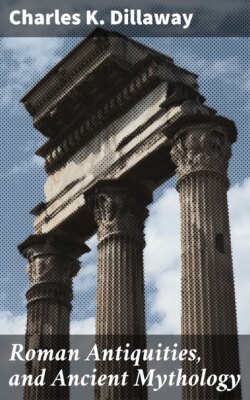Читать книгу Roman Antiquities, and Ancient Mythology - Charles K. Dillaway - Страница 8
На сайте Литреса книга снята с продажи.
Other Divisions of the Roman People.
ОглавлениеTable of Contents
That the Patricians and Plebeians might be connected together by the strictest bonds, Romulus ordained that every Plebeian should choose from the Patricians any one he pleased, for his patron or protector, whose client he was called.
It was the duty of the patron to advise and defend his client, and to assist him with his interest and substance. The client was obliged to pay the greatest respect to his patron, and to serve him with his life and fortune in any extremity.
It was unlawful for patrons and clients to accuse or bear witness against each other, and whoever was found to have done so, might be slain by any one with impunity as a victim to Pluto, and the infernal gods.
It was esteemed highly honorable for a Patrician to have numerous clients, both hereditary and acquired by his own merit. In after times, even cities and whole nations were under the protection of illustrious Roman families.
Those whose ancestors or themselves had borne any curule magistracy, that is, had been Consul, Prætor, Censor or Curule Edile, were called nobiles, and had the right of making images of themselves, which were kept with great care by their posterity, and carried before them at funerals.
These images were merely the busts of persons down to the shoulders, made of wax, and painted, which they used to place in the courts of their houses, enclosed in wooden cases, and seem not to have brought out, except on solemn occasions. There were titles or inscriptions written below them, pointing out the honors they had enjoyed, and the exploits they had performed. Anciently, this right of images was peculiar to the Patricians; but afterwards, the Plebeians also acquired it, when admitted to curule offices.
Those who were the first of their family, that had raised themselves to any curule office, were called homines novi, new men or upstarts. Those who had no images of themselves, or of their ancestors, were called ignobiles.
Those who favored the interests of the Senate were called optimates, and sometimes procĕres or principes. Those who studied to gain the favor of the multitude, were called populares, of whatever order they were. This was a division of factions, and not of rank or dignity. The contests between these two parties, excited the greatest commotions in the state, which finally terminated in the extinction of liberty.
